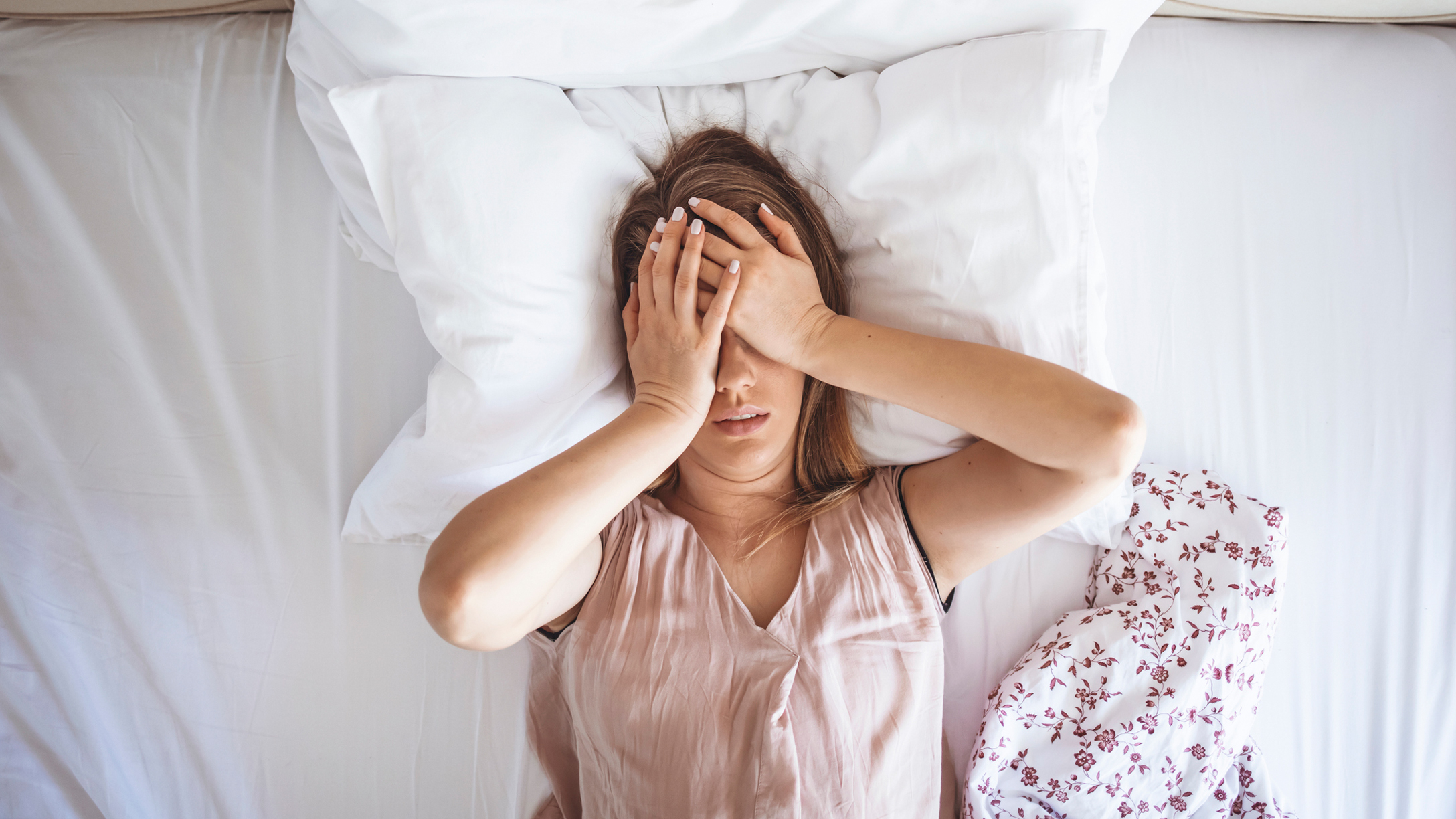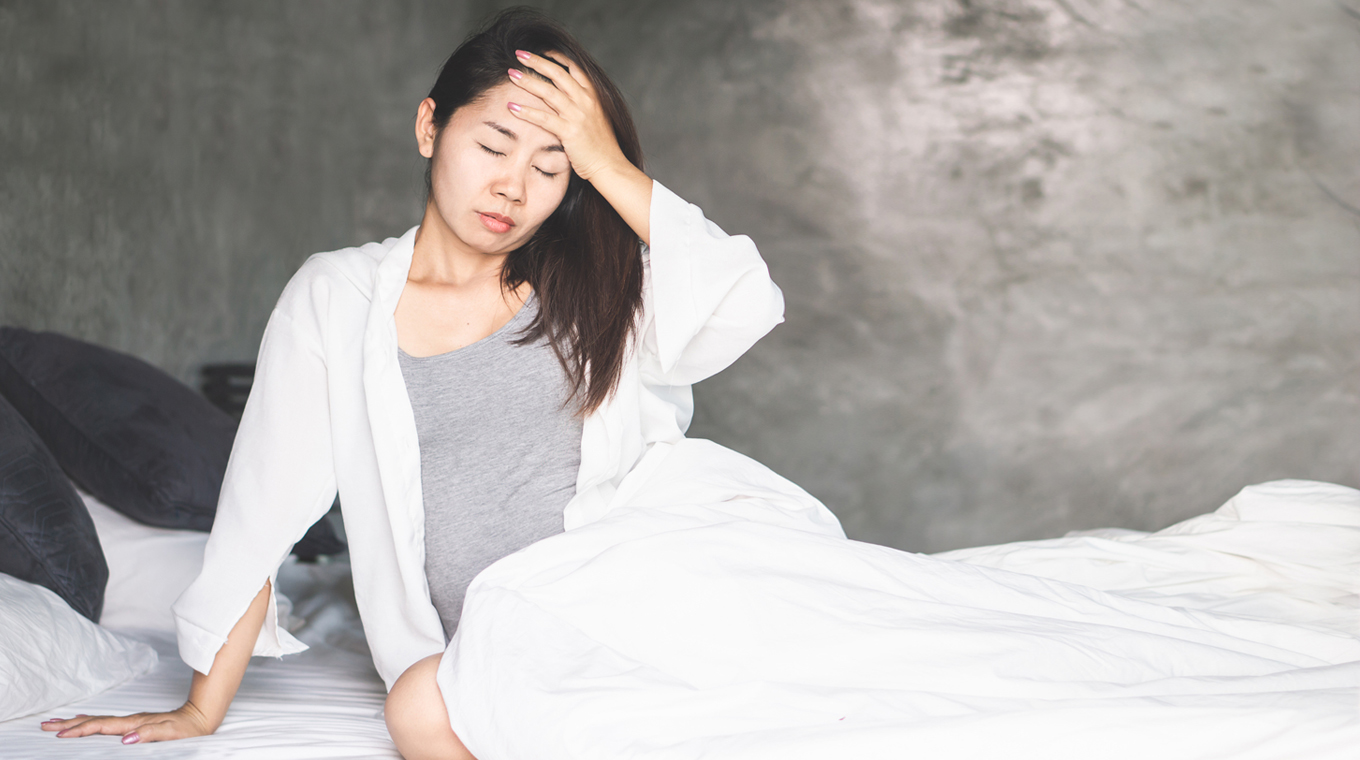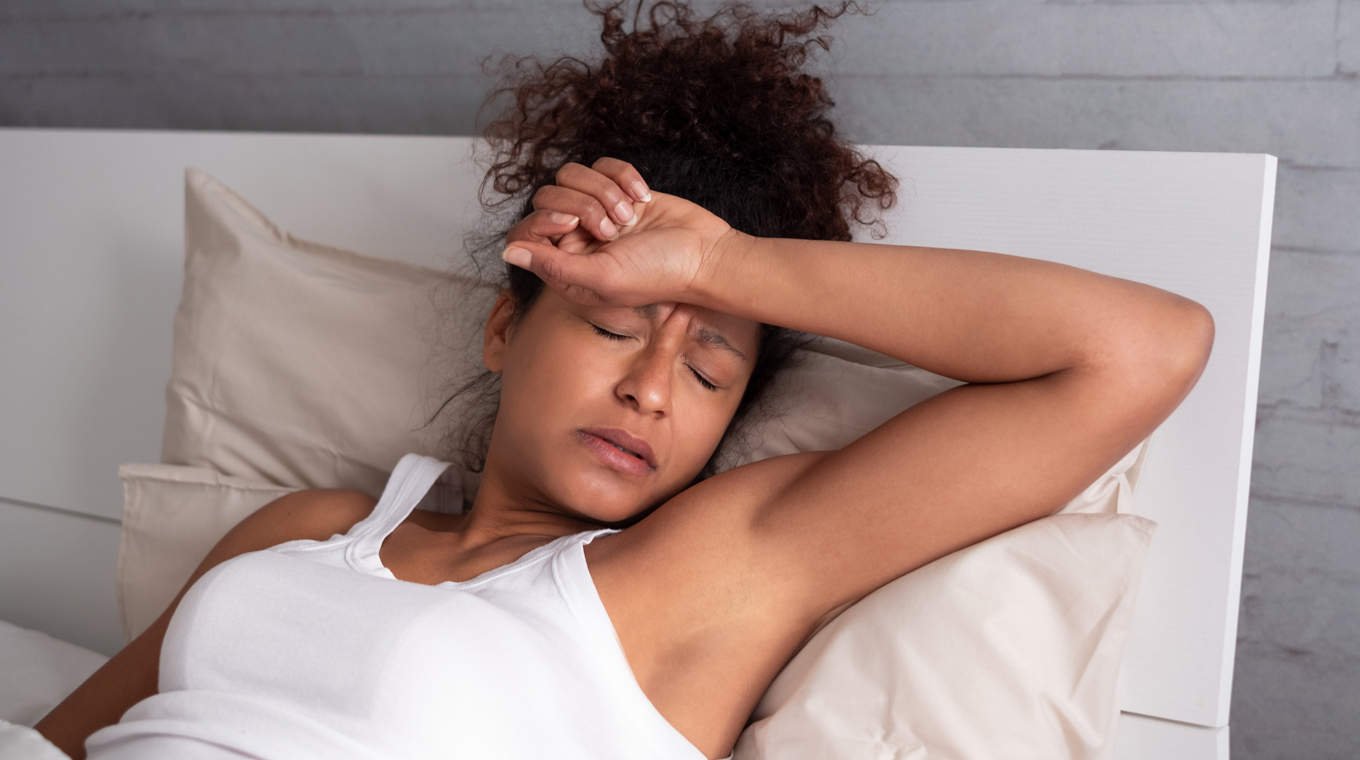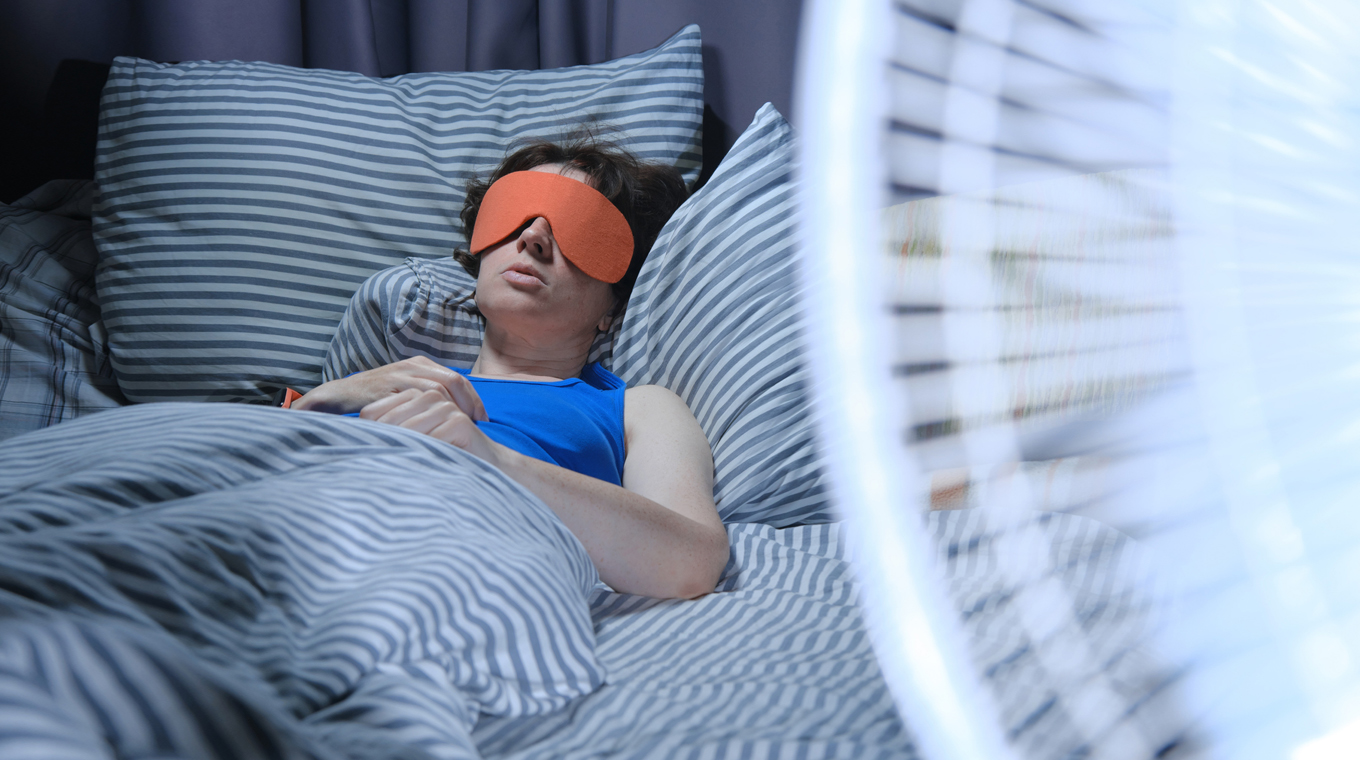
In this article
You’ve done all the hard work of delivering your baby and are fully expecting to deal with midnight feedings and sleep deprivation. But postpartum night sweats can be an unexpected twist in a new mom's life.
For many moms like Pranali Patel, night sweats continued for the entire time she was breastfeeding. “My postpartum night sweats were so bad that I would wake up twice or sometimes three times per night to change my clothes because they were soaked in sweat.” Patel shared with Mom.com.
Let’s take a closer look at what night sweats are, how long they last, and what you can do to make life a little easier.
What are night sweats?

Your body undergoes some significant changes when you’re pregnant. Your hormones are going wild as you grow a baby inside. Things don’t go back to normal immediately when your baby is born. You may experience many issues that include vaginal soreness and discharge, uterine contractions, bowel issues, and mood shifts. Another thing that you might experience is night sweats.
Night sweats are the significant perspiration that you experience while sleeping. While postpartum is not the only cause of night sweats, nearly one-third of new moms experience night sweats to some degree. These are similar to hot flashes that women will experience during menopause.
What are the causes of night sweats?

Night sweats are caused by hormonal changes in the body that happen after giving birth. Estrogen and progesterone are released in large quantities during pregnancy, and these hormones can lead to a decrease in body temperature. During this period after delivery, your body has lower estrogen levels, which can lead to increased temperatures.
Additionally, the body has accumulated more fluid during the pregnancy to support the baby’s growth. After birth, the body will work hard to release the excess fluid, which is done with sweating and urinating.
Night sweats are thought to be at their worst two weeks after delivery but can persist for months, as reported by women who breastfeed their babies.
Keep it cool: Treatment for night sweats

You can do a lot to manage your night sweats, though you likely can’t prevent them from happening entirely. Here are some tips to keep in mind:
- Stay cool: Use air conditioning or fans to help keep you cool during the night.
- Drink cold water: Drinking cold water will help keep you hydrated and alleviate symptoms of night sweats.
- Eat soy: Soy has been shown to help menopausal women reduce hot flashes. Eating soy or taking soy isoflavone supplements might improve your night sweat symptoms.
- Use lightweight sheets: Many women use lightweight sheets to help keep them cool throughout the night. The best sheets for night sweats are cotton, silk, or linen that help body heat escape.
- Wear loose fabrics: Avoid tight clothes that cause you to sweat more. Use cotton, silk, and linen fabrics and avoid synthetics such as polyester or Lycra.
- Limit trigger foods: Some foods will cause you to sweat more. These include spicy foods, caffeine, alcohol, and hot foods or liquids such as soups.
- Try relaxation techniques: Some women find that certain relaxation techniques help with night sweats. These include meditation, hypnosis, progressive muscle relaxation, visualization, and deep breathing.
- Eat well and exercise: The goal is to help your body get back to homeostasis sooner than later. A healthy lifestyle can aid this and shorten the timespan you may be experiencing night sweats.
- Get a massage: A back massage or foot reflexology can help aid sleep postpartum and reduce night sweats.
- Take a superfood supplement: “Natural remedies that include maca, chlorella, grape seed, and turmeric are all-natural anti-inflammatories that support your adrenals and your body’s natural production of hormones,” Dr. Anna Cabeca told Mom.com.
Preparing for the long haul
If you’re experiencing night sweats, you may need to prepare yourself to have them for a period of time. Following all the tips might not eliminate your night sweats. Many women will put a mattress protector on the bed so that the mattress doesn’t get soaked through every night. Be prepared to change your clothes in the middle of the night. Keep extra pajamas nearby, so you aren’t searching for them in the dark.
When are night sweats a sign of something more serious?
If your night sweats persist for weeks and are accompanied by other symptoms such as a fever, body aches, enlarged lymph nodes, or significant weight loss, talk to your doctor. There may be something more serious going on that you want to address sooner than later.




